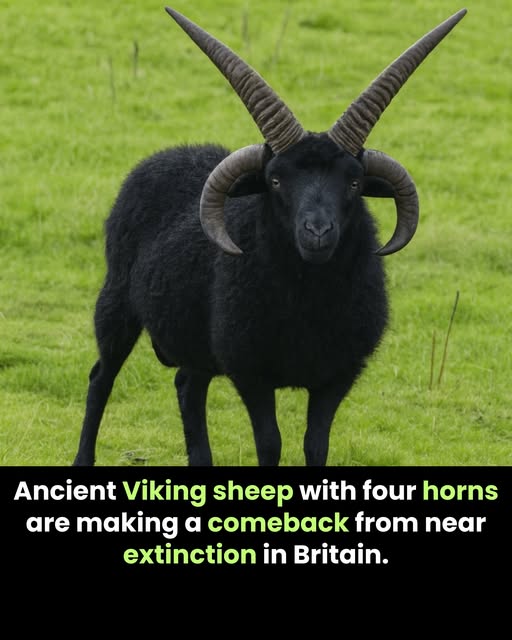
The North Ronaldsay sheep, an ancient and rare breed believed to date back to Viking times, has made a remarkable recovery in Britain after facing near extinction. Native to the Orkney Islands in Scotland, these sheep are genetically unique, with many growing four horns, a rare trait known as polyceraty.
What sets them apart even further is their diet—these sheep feed primarily on seaweed. This unusual adaptation developed after a wall built in the 1830s limited their access to inland grazing. Instead of grass, the sheep adapted to thrive on marine algae found along the rocky coastline. Their specialized digestive systems are capable of processing high-iodine seaweed without harm, a feature almost unheard of in other livestock.
At one point, the survival of the North Ronaldsay sheep was jeopardized by habitat loss and a declining population. However, thanks to targeted conservation programs and breeding efforts, their numbers have bounced back.
Today, these sheep are highly valued for their wool, ecological importance, and historical significance as one of the oldest domesticated breeds in Northern Europe. Their revival is not just an agricultural achievement but a cultural one, preserving a direct link to Viking heritage.
